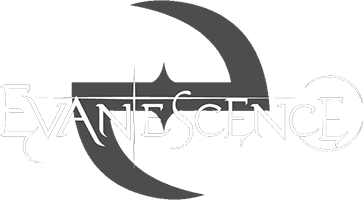ANY doubts about Evanescence keeping their fan base in the three years since the release of their chart-topping debut, Fallen, have been laid to rest.
The Open Door (Wind-up/Sony) hit the Australian album chart at No.1, leaving new releases from Jet and the Killers in the shade.
It was also something of a test for the band following the departure of guitarist and co-writer Ben Moody, who forged the Arkansas outfit with Amy Lee.
The first single from The Open Door, Call Me When You’re Sober, probably the most radio-friendly song here, is aimed at an ex-boyfriend. It shows the approach has not been much changed in Moody’s absence: heavy bass and drums, spotless and lavish production and Lee’s unmistakable vocals.
There is perhaps less metaphorical lyricism in this album than on Fallen and there is a chunkier edge to the hard rock, counterpointed by strings and lashings of choir. Weight of the World (perhaps a reaction to Lee’s sudden fame?), with acoustic guitar to the fore, exploits the formula of thumping chorus and gentle verse.
The album features plenty of Lee’s piano as well.
And yet, despite the chart success of Sober, there doesn’t seem to be the same pop infectiousness of Fallen: no clear balladic successor to My Immortal or an ear-grabber like Bring Me To Life which did so much to spearhead Fallen’s success after featuring on the Daredevil soundtrack.
Cloud Nine opens like Portishead as mad as hell, showing Lee’s maturation as a singer as she shows off broader vocal nuances.
Guitarists Terry Balsamo, who shared the bulk of the writing duties with Lee after he replaced Moody, and John LeComt, drummer Rocky Gray and bassist Will Boyd lay down a solid nu-metal groove.
Boyd has since left the band, replaced by Tim McCord, and Balsamo has contributed to the band’s tumultuous recent history when he had a stroke, from which he has largely recovered.
Cloud Nine’s gorgeous, soaring arrangements seem perfectly suited to the lush packaging, which itself reflects the Gothic sensibility that infuses many of the tracks with melancholy, helpless loneliness and unrequited longing.
Like You has a particularly maudlin longing draped around it, while Lithium might lend itself to a duet with Placebo’s Brian Molko.
Over 13 tracks, though, the lines blur into a bit of a musical muddle and it takes careful listening to pick out the subtleties in the verses when too many of the choruses sound so similar.
The album ends with a sombrely arranged but lyrically uplifting – well, almost – Good Enough. There is hope, the song suggests, but this album proves there is plenty of light on the horizon for Evanescence.
